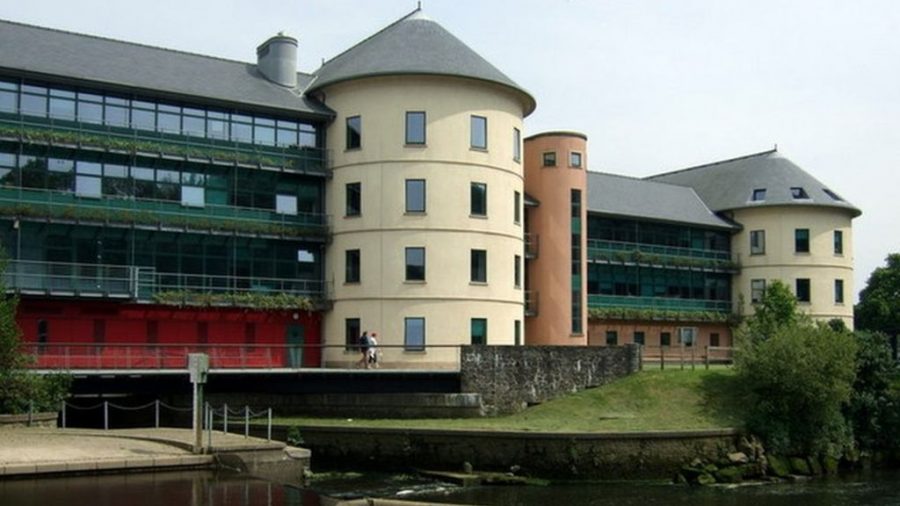News
GP shortage in Wales: Patients per doctor double European average

THE NUMBER of patients per GP in Wales is over twice the European average, raising concerns about primary care availability for hundreds of thousands of patients across the country.
In 2024, a report by BMA Cymru Wales showed that the European average for patients per GP was around 1,000. In Wales, the average is 2,210 patients per full-time GP. Over the last decade, the average number of patients per practice has increased by just under 25%.
RURAL ISSUES

Over the past decade, the number of GP practices in Wales has decreased by 18%, dropping from 470 to 378. This decline is due to a combination of closures and mergers, reflecting broader challenges in general practice, such as workforce shortages and increasing patient demand.
The situation is worsened by the fact that around 80% of Wales’s land area is relatively sparsely populated, consisting of small settlements grouped around former market towns. New GPs are overwhelmingly concentrated in Wales’s few larger urban centres, chiefly along the M4 corridor and the North East Wales border area.
This means rural patients often have to travel significantly longer distances to access GP services compared to urban residents. The closure of rural practices forces patients to register with larger, more distant surgeries, increasing the patient-to-GP ratio. This results in longer waiting times and reduced appointment availability.
Long travel times and a lack of transport deter individuals from seeking timely care, leading to delays in diagnosis and treatment. By the time patients present for clinical care, their conditions may have worsened, making treatment more expensive and reducing the likelihood of positive clinical outcomes.
And that is before patients are placed on one of the NHS’s lengthy waiting lists for diagnosis and treatment.
The older age profile of Wales’s rural GPs was long recognised as a ticking time bomb under primary care. Yet, efforts to stem the outflow of GPs from rural Wales have been patchy and ineffective. Changes to pension rules have accelerated retirements, and as older rural GPs leave the profession, replacing them has become increasingly difficult.
The reasons are clear. Rural Wales faces huge difficulties attracting and retaining GPs due to professional isolation, fewer career development opportunities, and a lack of interest in rural practice partnerships. These factors have led to a reliance on locum doctors or salaried GPs, which in turn can disrupt continuity of care.
IN PEMBROKESHIRE
Practice closures and the shortage of GPs have hit Pembrokeshire hard.
The Argyle Medical Group in Pembroke Dock is the second-largest GP practice in Wales, with around 25,000 patients registered and just nine GPs—an average of 2,800 patients per GP. In 2021, the practice had 10.75 full-time equivalent GPs and was seeking to recruit more. However, due to a lack of available GPs, the practice was forced to withdraw from its Neyland practice at St Clement’s Surgery and reduce hours at St Oswald’s Surgery in Pembroke.

As a knock-on effect of the Neyland closure, patients were transferred to the Neyland and Johnston Medical Practice, which eventually handed back its GP contract following retirements and recruitment difficulties. Its patients are now serviced by salaried and locum GPs employed by the Health Board.
The same issues have plagued GP practices from Tenby in Pembrokeshire’s southeast to St Davids in the northwest. While it would be a stretch to say that “GP deserts” exist in the same way as “NHS dental deserts,” the increasing patient load on hospitals suggests that many people are now seeking treatment at A&E for conditions that would previously have been managed by a GP.
The Welsh Government’s approach is to ask patients to self-triage before going to hospital—an impractical and, for many, heartless solution. If you are a parent with a child in agony and unable to tell you what is wrong, what would you do?
SITUATION NORMAL, SITUATION CRITICAL
In 2018, the Welsh Government announced a plan to recruit 1,000 GPs into NHS general practice in Wales. While the number of GPs has increased, it has not risen by anything close to 1,000. Worse still, the number of full-time GPs has actually fallen.
What this means is that while there are technically more GPs in total, there are fewer available in practice because many of the new recruits work part-time, as locums, or on limited contracts (for example, as doctors on call).
It’s the same statistical sleight of hand used to describe frontline clinical staff in the Welsh NHS. Welsh Government ministers proudly claim that the Welsh NHS employs more people than ever, yet the number of full-time staff has plummeted.
In an attempt to address the GP shortage, the Welsh Government has increased the number of routine clinical assessments and treatments that pharmacists and practice nurses can undertake. However, only seven relatively minor ailments can be treated by pharmacists independently, while practice nurses must have GP approval to prescribe medication.
Expanding community-based healthcare is a sensible aim, but it is undermined by the critical shortage of full-time GPs in rural Wales. There are not enough independent prescribing pharmacists or community nurses to fill the gap. The reliance on locum GPs disrupts continuity of care, leading to situations where patients are taken off long-term medication without explanation or, worse, experiencing increased risks of missed or misdiagnosed conditions.
Wales has reached a tipping point.
Politicians frequently offer warm words about “our NHS,” “our precious NHS,” and “our wonderful NHS nurses and doctors,” but none have publicly acknowledged that the foundation of NHS care—GP surgeries as the first point of contact for the sick—has buckled. If they did, they would have to come up with real solutions instead of blaming patients for being ill or making vague promises about digital medicine transforming rural healthcare.
The situation is critical.
In Wales, that passes for normal..
Crime
Former Wales rugby star admits Christmas Day drink-driving offence

Ex-Ospreys captain was almost twice over limit in Pembroke town centre
Former Wales back row Jonathan Thomas has admitted driving through Pembroke town centre on Christmas Day when he was almost twice over the drink-drive limit.
This week Haverfordwest magistrates heard that Thomas, 43, was stopped by officers as he drove his Mercedes CLA 220 along The Green, Pembroke, at around 5pm on Christmas Day.
“The officers were very concerned at the manner of his driving, as the car was being driven erratically and was swerving to the other side of the road,” said Crown Prosecutor Sian Vaughan.
“When Jonathan Thomas got out of the car, the officers could see that he was having difficulty standing and was unsteady on his feet.”
Subsequent breathalyser tests showed Thomas had 62 mcg of alcohol in his system, the legal limit being 35.
Thomas, who has no previous convictions, pleaded guilty to the drink-drive charge and was represented in court by solicitor Jess Hill.
“He has family in the area and had travelled to spend time with them on Christmas Day,” she told the magistrates. “He’s very remorseful for his actions and hugely regrets his decision that day.”
Jess Hill concluded by saying that Thomas is currently “between jobs and living off his savings”.
Thomas, who gave his address as Main Road, Bredon, was disqualified from driving for a total of 18 months.
“The length of your disqualification reflects the fact that you were more than a little bit over the limit,” commented the presiding magistrates when imposing sentence.
He was fined £120 and ordered to pay £85 costs and a £48 court surcharge.
The former Wales back row left his role as Swansea RFC head coach at the beginning of December 2025 as a result of ongoing health concerns. He was forced to retire from playing in 2015 on medical advice after being diagnosed with epilepsy and is one of the 390 former rugby union players currently taking part in a concussion lawsuit against the sport’s authorities.
“Long-standing issues linked to the head trauma have caused me some concern recently and it has been impossible for me to give the role everything it needs,” he said in a previous interview with the BBC.
His rugby career started out with Pembroke RFC juniors before moving to Swansea RFC, which he captained when he was 19. He then joined the Ospreys where, over a ten-year period, he won four league titles and an Anglo-Welsh Cup. He was the youngest player to captain the Ospreys and, at the time of leaving, was the joint highest appearance holder, together with Andrew Bishop, on 188 appearances.
His international career saw him play for Wales at Under-16, Youth, Under-19, Under-21 and Sevens levels. He made his senior international debut against Australia in 2003, featured at the 2007 Rugby World Cup and was part of two Six Nations Grand Slam-winning sides in 2005 and 2008. Between 2004 and 2011, Thomas was included in every Wales Six Nations squad. In his appearances for Wales, he scored seven tries.
Local Government
Independent panel gives positive verdict on Pembrokeshire County Council

Four-day assessment highlights improvement, leadership and governance
AN INDEPENDENT panel has concluded that Pembrokeshire County Council is meeting its statutory performance requirements and has shown improvement across a number of key areas.
The findings follow a four-day visit in October 2025, when a group of external peers carried out a Panel Performance Assessment (PPA), a process required once every electoral cycle under Welsh Government legislation.
The purpose of the PPA is to provide an independent expert view on how effectively the council is using its functions, how it deploys resources, and whether its governance arrangements are fit for purpose.
The four-member panel was led by Phil Roberts, independent chair and former chief executive of Swansea Council. Other members were Cllr Anthony Hunt, leader of Torfaen Council; Emma Palmer, chief executive of Powys Council; and Andrea Street OBE, representing the public, private and voluntary sectors.
In its final report, the panel concluded that Pembrokeshire County Council is meeting its statutory requirements and commented favourably on many aspects of its work. The authority was described as effective, having responded well to a challenging financial position and demonstrated improvement in a number of key areas.
Among the report’s findings was praise for “a cohesive cabinet, which despite its rainbow coalition arrangements, exercises a model of distributed leadership which is particularly effective”. The panel also highlighted “a committed Senior and Extended Leadership Team who recognised the journey of improvement the council has been on under the Chief Executive’s strong leadership”.
The panel further noted “a broad set of values and behaviours consistently demonstrated across the organisation, from the Senior Leadership Team to frontline staff”, adding that there was “a genuine desire to work in the interests of the communities and residents of the county”.
While the overall assessment was positive, the report also identified areas where further progress could be made. Seven recommendations were set out, covering scrutiny arrangements, corporate capacity, collaborative leadership, economic regeneration capacity, resource prioritisation, communications, and transformation and innovation.
Council leader Jon Harvey welcomed the report, describing the assessment as a constructive experience.
“This was an extremely positive experience for the council, and an opportunity to learn and benefit from the views and perspectives of independent experts from outside the authority,” he said. “We welcome the assurance provided by the panel that we are on the right track, and the feedback which has helped to identify opportunities and areas for improvement.”
Cllr Harvey also thanked panel members for their work, along with officers from the Welsh Local Government Association who supported the assessment process.
“We accept the panel’s findings in full and I am convinced that the action plan we have developed in response to the recommendations will enable us to further strengthen key areas of our work so we can continue to provide quality services to our residents and communities,” he added.
In line with legislation, the council has produced a formal response and action plan setting out how it will address the panel’s recommendations. These will be presented to Cabinet on February 9 and to full council on March 5 for formal approval.
News
Kurtz calls on Labour MPs to back release of Mandelson papers

Opposition motion follows Epstein-linked document disclosures
A SENEDD Member has called on Labour MPs to support a Conservative Opposition Day Motion demanding the release of papers linked to Peter Mandelson’s appointment as the UK Ambassador to the United States.
Samuel Kurtz said the motion follows the publication of new files and photographs involving Lord Mandelson, which were released as part of a United States investigation into the disgraced and convicted child sex offender Jeffrey Epstein.
Speaking out, Mr Kurtz said that during Prime Minister’s Questions, the Prime Minister admitted he was aware of Peter Mandelson’s ongoing relationship with Epstein at the time of his appointment.
“That means the Prime Minister knowingly appointed Peter Mandelson to one of the most important diplomatic roles in government despite his links to Epstein,” he said. “This raises serious questions about the Prime Minister’s judgement.”
Mr Kurtz went on to accuse the Prime Minister of attempting to prevent transparency over the appointment process.
“Now, instead of being open and transparent, the Prime Minister is attempting to block the release of documents relating to Mandelson’s appointment in order to protect his own position,” he said.
He warned that Labour MPs who oppose the motion would share responsibility for withholding information, adding: “If Labour MPs support blocking the release of these papers, they will be complicit in covering up the process and judgement that led the Prime Minister to appoint Peter Mandelson as Ambassador, despite his friendship with Jeffrey Epstein.”
-

 Health6 days ago
Health6 days agoConsultation reveals lack of public trust in health board
-

 News1 day ago
News1 day agoPrincess of Wales visits historic Pembrokeshire woollen mill
-

 Crime5 days ago
Crime5 days agoPembroke man accused of child sex offences sent to Swansea Crown Court
-

 Community6 days ago
Community6 days agoCampaign to ‘save’ River Cleddau hits over 2,200 signatures
-

 Health3 days ago
Health3 days agoDoctor struck off after sexual misconduct findings at Withybush Hospital
-

 News7 days ago
News7 days agoWelsh Conservatives push for reversal of 20mph limit and major road spending
-

 Health7 days ago
Health7 days agoAmbulance called after ‘drop of mouthwash’ swallowed as 999 abuse highlighted
-

 Crime5 days ago
Crime5 days agoManhunt intensifies after woman seriously injured in Carmarthen park stabbing

























